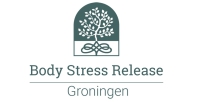Body Stress Release Groningen
Body Stress Release (BSR) is a gentle and non-invasive method designed to release accumulated tension within the body. By applying precise pressure, practitioners locate and relieve areas of stress, facilitating relaxation and re-establishing the body’s innate capacity for self-healing.



